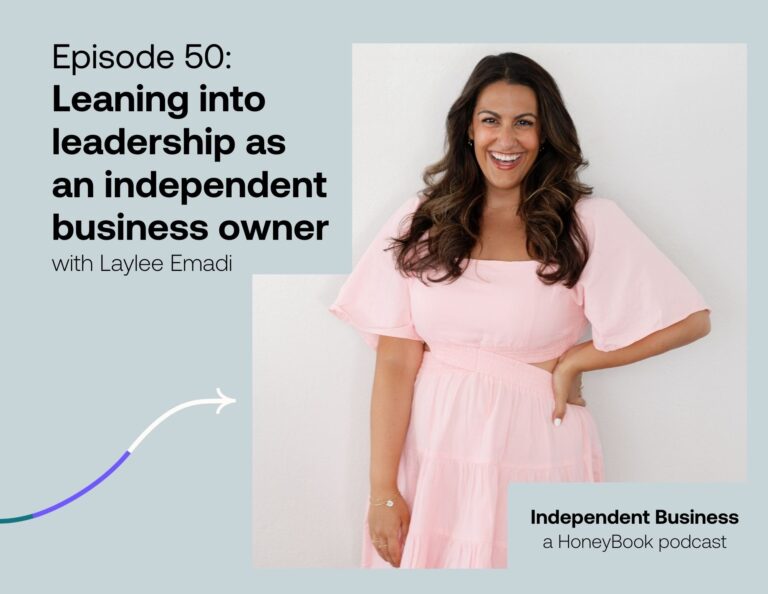
So many small business owners I talk to express that they want to blog, but just can’t get themselves to do it.
Blogging can vastly improve your small business on many levels. It’s a powerful marketing tool that can help propel your business forward.
I used to think it was impossible to blog regularly. On the surface, blogging feels like hard work—especially if you’re not a writer by trade. So I always wondered how the heck all those other people did it.
But, like with everything else in life, I realized it’s just a matter of a little discipline. Just like with exercise or any other new habit you want to create, blogging can be approached the same way. And with practice it becomes much easier.
Here are several compelling reasons to blog for your small business, plus some tips for blogging more consistently.
Why should you blog for your small business?
Studies have shown that blogging helps reduce overall marketing spend by more than 60%. How is that possible? Because blogging can built trust with your audience, grow your traffic and lead gen, and ultimately lead to more exposure for your business.
1. Build Trust
One of the obstacles for any small business is building trust. To win someone’s business, they’ll have to think you’re legitimate and trustworthy.
Big businesses have the liberty of more notable clientele and bigger, more powerful marketing budgets. Unfortunately, as an independent contractor, it’s likely you’re in the same boat.
One way to build trust with potential customers is to demonstrate expertise. By writing blogs that show your know-how, you can quickly showcase yourself as an expert.
And this doesn’t require that you blog every week. Even a few well-written blog posts on your website can be enough to show that you know what you’re doing.
2. Boost Your SEO
If you’re new to SEO, here’s a really quick intro:
SEO stands for search engine optimization. It’s the practice of creating a website that appeals both to search engines and your website visitors with the goal of getting more traffic and leads from your website.
Search engines like Google want to return the best possible content for a user’s search. Therefore, they want to return content that is highly relevant and authoritative on the subject.
Two of the main signals Google uses to evaluate how high to rank website pages are:
- Content: How relevant is the content to the user’s search? Are relevant keywords used in the content? Does the content seem reliable and high quality?
- Backlinks: How many high-authority websites point to this website? Websites with more links to them tend to be higher quality sites.
Let’s start with the content angle. Blogging is one of the best ways to build your search engine presence because it’s a great way to create content to cover long-tail searches—longer, more specific searches like questions.
For example, your website’s home page may be optimized for “wedding photographer”. But if you want to target a search like “how to choose the right wedding photographer”, that’s better suited for a blog post.
This can be especially helpful for traffic when you’re starting out. It may be extremely competitive to compete for a term like “wedding photographer in Austin” but it may not be as hard to get traffic for a niche search like “best spots for wedding photos in Austin, Texas”.
Blogging is also a great way to build backlinks. Once people discover your blog posts, they may start linking to them from their own websites. Not only do these links generate traffic for you, they also boost your backlink profile and benefit your site’s overall SEO standing.
Since I started blogging regularly, I’ve seen a real boost in my site traffic. Plus, people started to want to feature me on their sites after having found me through organic search, which is pretty awesome.
3. Generate Leads
As your website traffic grows, you’ll get more opportunities to capture leads. Research has shown that websites with blogs achieve 3 times the lead volume.
There are two ways to generate leads from blogs:
- Direct people to your service pages or contact form
- Add a newsletter sign-up form to your blog
While you’d love for someone to be so blown away by one of your blog posts that they immediately want to work with you, that’s not typically how it works.
You’re better off getting people to subscribe to your blog so that they read your posts regularly. Then, when it comes time to hiring someone in your field of work, you’ll be top of mind. It’s more of a long-term play.
4. Gain Exposure
Blogging doesn’t just have to be about getting more search engine traffic. It’s a great way to show what makes you you. Writing thoughtful blog posts can also help you gain exposure on social media and other websites.
For example, a satirical post like “Why you shouldn’t hire a wedding photographer” may not generate much search traffic, but its controversial stance is more likely to generate buzz on social media than something a little dryer.
Or writing a post about your favorite local businesses could earn you a share from those businesses on social media.
There are infinite possibilities when it comes to creating buzzworthy blogs that get you more exposure for your business while staying true to your brand.
5. Create Value for Your Clients
Blogging doesn’t just have to be about winning new clients. It can also be about providing more value to your current clients.
For example, if there’s a question you get from your clients all the time, write a blog about it. Not only does it answer their question, it also shows that you care (and frees up your time from answering the question again in the future)!
Writing frequent blogs also keeps you top of mind for your clients, and gives them a reason to visit and share your website.
I know it can be challenging for some to get started with blogging, so I want to give you a couple of tips before moving on.
Tips for Blogging Consistently
When it comes to blogging, consistency is key. Businesses that publish regular content receive 8 times more traffic.
In the past, I used to write blogs on random days when I felt like it. Honestly, that approach did not work at all. I never had regular content published that way.
But I’ve since turned it around with a consistent blogging strategy. Here are a few tips to help you get started.
Tip #1: Pick One Day of the Week
The one thing that really helped me blog consistently is dedicating a specific day of the week to batch create my blog posts. Hands down, this was the biggest game-changer for me.
I call Monday my content creation day.
That means I don’t schedule anything else that day so I don’t feel the pressure of getting too much done in one day. All I do is focus on creating at least 2 new blog posts that day.
Trust me when I say that when I’m done with them, I feel super accomplished for the day. And given that it usually only takes me 2-3 hours to write a few blogs, I still have time left to get more work done.
However, anything else I get done that day I treat as a bonus. That way, I have no excuses for not getting my blog posts done because “technically” that’s the only thing on my plate for that day.
See what I did there?
Tip #2: Create a catch-all document of blog topic ideas
Sit down one day for an hour or so and come up with as many topics for your blog posts as possible. Make a list of them and save them on your computer for reference.
Doing this is so helpful. If you don’t do it, I guarantee when you sit down to write your blog posts, you won’t always know what to write about and you’ll get frustrated. It’s a waste of time.
Tip #3: Use your clients for topic ideas
If questions come up from your clients that make a great blog, document them!
Or if you wrap up a project that’s shareworthy, write a blog post featuring your client and the work you did for them.
If you need even more ideas, ask your audience. You can use your client questionnaires to collect common pain points from your audience. Then, simply use those pain points to generate some blog post ideas. Done and done.
Start Blogging for Your Small Business
Create a game plan, learn to batch task your work, and get to it. Good luck!
If you’re interested in more ways to manage your small business, check out HoneyBook— a client management software for small businesses that makes it easy to manage projects, book clients, get paid and send online contracts and online invoices all from one place.



